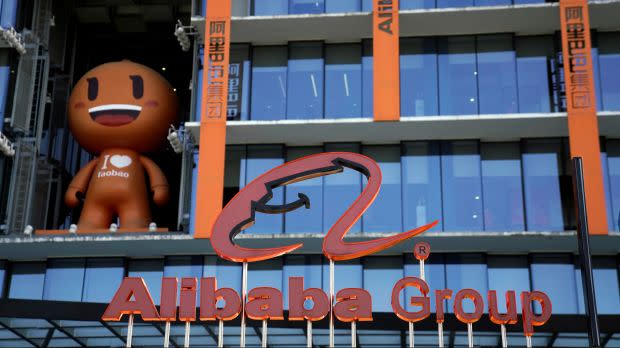“Er xuan yi”: The business tactic that led to Alibaba’s $2.8 billion antitrust fine

On Saturday (April 10), China wielded its most ferocious weapon yet in its antitrust war against big tech.
The market regulator imposed a fine of around 18 billion yuan ($2.8 billion) on Alibaba, saying the company had abused its dominant market position. The focus of the penalty is a business tactic that forced Alibaba merchants to choose sides between its platforms and those of rivals.
The fine, which amounts to around 4% of Alibaba’s China revenues in 2019, is one of Beijing’s sternest warnings to tech giants that have expanded freely without much regulation. But since late last year, China has joined the global trend of governments exerting tighter oversight of tech firms’ monopolistic practices and expanding influence—with tech mogul Jack Ma’s empire facing the most severe consequences so far. The government thwarted Ant Group’s monster IPO in November following Ma’s speech criticizing regulators, while the antitrust watchdog imposed penalties on Alibaba and rivals like Tencent for their failures to report past deals.
Investors and analysts seemed relieved at the regulator’s move, with the fine lifting some of the uncertainty surrounding the scrutiny of Alibaba, which said it will “ensure its compliance with determination.” (The fate of sister firm Ant, though, is less settled: The People’s Bank of China on Monday (April 12) announced it had finalized a “rectification” plan for Ant that will see the fintech giant housed in new financial holding company where it will be regulated more in line with a traditional bank.)
Shares of Alibaba closed up around 6.5% in Hong Kong today, while analysts at US investment bank Jefferies said the antitrust ruling marked a “new starting point” for the company.
“We believe market concerns over the anti-monopoly investigation on Alibaba are addressed by the State Administration for Market Regulation’s (SAMR) recent decision and penalties,” said Jefferies in a note.
In particular, the SAMR, which opened a probe into Alibaba’s alleged monopolistic practices in December, said in its notice on the fine (link in Chinese) that one specific business tactic was responsible for the hefty fines. “Ever since 2015, Alibaba had abused its market-dominant position in the online retail platform space, raising the request of ‘er xuan yi’ to merchants on its platforms, forbidding them from opening up shops or participating in promotional activities on its rival platforms,” it said.
The company had also used technical means like data and algorithms to make sure the er xuan yi policy was executed, it added. The regulator has ordered Alibaba to stop such practices.
What is “er xuan yi?”
“Pick one from two,” or “er xuan yi” (二选一) in Chinese, refers to platforms forcing merchants to have exclusive partnerships or distribution channels with them, a practice that has existed in China’s e-commerce sector for years. While media reports and complaints from merchants in the past offered evidence for its existence, the SAMR’s statement give us the most detailed look so far at how firms like Alibaba executed such a tactic.
Alibaba had required some merchants to either verbally agree or write in contracts that they would only, or mostly, sell their products on the company’s platforms instead of its rivals’. Some of the practices included requiring merchants to not set up flagship stores on other platforms, use Alibaba as the only online distribution channel in China, or limiting the number of stores on rival platforms, said the SAMR, which added that merchants largely complied.
The company also required merchants not to participate in rival platforms’ major promotional activities or ask them to obtain its approval for conducting promotional events on other platforms, in a bid to “limit the influence” of its rivals. Alibaba sent screenshots of the merchants’ promotional activities on rival platforms during the country’s biggest shopping festivals such as “Double 11” Singles’ Day to imply that they should not do so, according to SAMR.
Meanwhile, Alibaba had corresponding penalties for merchants who failed to follow the er xuan yi rule. This included a “gray list” of merchants who violated the rule, which prevented their participation in major promotional events. Some were also given reduced search weight, which means the vendors’ products would be ranked lower in search results, or could not even be found by customers. Such practices “eliminated” and “reduced” the competition the company faced in this space, said the regulator.
At least for now, the fine could lead to Alibaba and other e-commerce firms becoming “very cautious” in imposing exclusionary measures, said Angela Zhang, associate professor of law at the University of Hong Kong and the author of the book Chinese Antitrust Exceptionalism. This means companies need to have other ways to retain merchants. Alibaba CEO Daniel Zhang said in a conference call today that the company would lower entry barriers and business costs for its merchants, and said he does not expect to see any “material negative impact” from the change of exclusivity arrangements. Zhang said the company’s previous exclusive arrangements only involved some brands’ flagship stores on Tmall, an e-commerce site under Alibaba.
“So instead of imposing restrictive conditions, this is an alternative way of incentivizing merchants to stay on its platforms. It is more costly for the firm, but it is also the practical means for the firm to maintain its competitiveness,” Zhang told Quartz. “This move thus directly benefits users, including the merchants and consumers.”
Alibaba didn’t immediately reply to a request for comment.
Sign up for the Quartz Daily Brief, our free daily newsletter with the world’s most important and interesting news.
More stories from Quartz:
